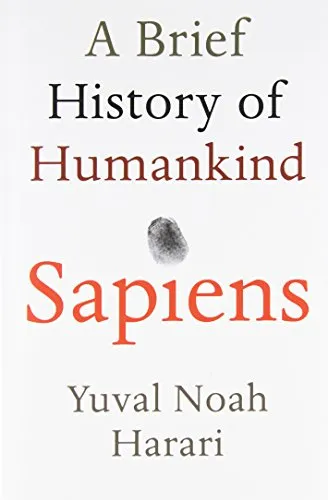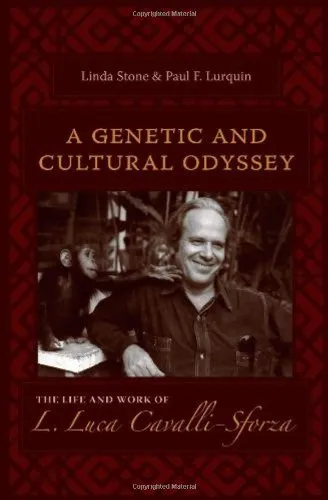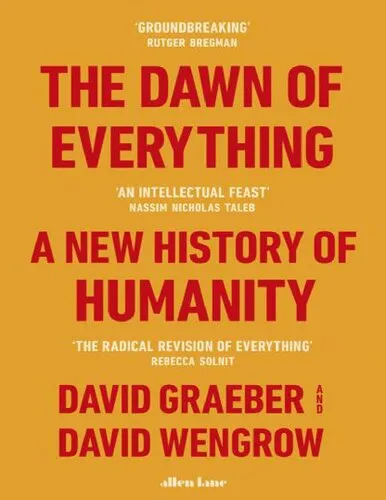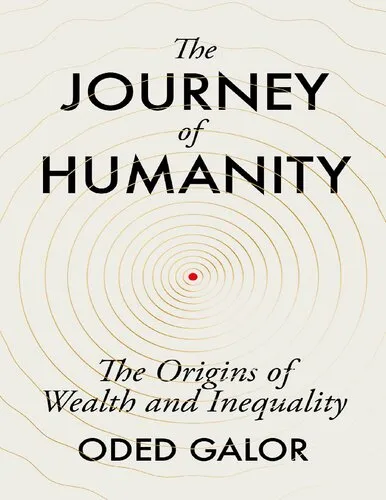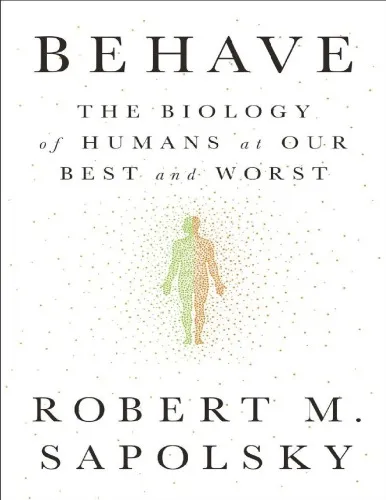Sapiens: A Brief History of Humankind
5.0
Reviews from our users

You Can Ask your questions from this book's AI after Login
Each download or ask from book AI costs 2 points. To earn more free points, please visit the Points Guide Page and complete some valuable actions.Related Refrences:
Persian Summary
Welcome to the introduction of "Sapiens: A Brief History of Humankind," a thought-provoking journey through the expansive landscape of human history. Authored by Yuval Noah Harari, this book elucidates the evolution of Homo sapiens, exploring the profound shifts that shaped our species from insignificant apes to rulers of the world.
Detailed Summary of the Book
The tale of human history, as presented in "Sapiens," is a narrative of the various revolutions that have steered humanity's course. Harari categorizes these pivotal transformations into three major chapters: the Cognitive Revolution, the Agricultural Revolution, and the Scientific Revolution.
In the Cognitive Revolution, approximately 70,000 years ago, Homo sapiens developed an ability to think and communicate in novel ways, leading to unprecedented cooperation and societal structures. This foundational shift facilitated the spread of our species across the planet, allowing us to manipulate our surroundings and outcompete other human species.
Next, the Agricultural Revolution, occurring around 10,000 years ago, marked our transition from nomadic tribes to settled societies. This change fostered the development of complex hierarchies and systems of governance but also introduced social inequality and environmental degradation.
The Scientific Revolution, which began about 500 years ago, equipped us with immense power through advancements in knowledge and technology. This era has rekindled our quest for truth and transformed how we perceive the universe, while also highlighting the potential dangers of our newfound capabilities.
Key Takeaways
- The importance of shared myths and imagined realities, such as religion and nation-states, which enabled large-scale human cooperation.
- The paradox of progress, wherein technological advancements solve certain issues but create new ones, exemplified by the Agricultural Revolution's impact on human health and society.
- The understanding of happiness in relation to biological imperatives, challenging the notion that increased wealth and power lead to greater satisfaction.
- The ongoing reshaping of human identity and society as biotechnology and artificial intelligence blur the lines between organic and inorganic life.
Famous Quotes from the Book
"People are usually afraid of change because they fear the unknown. But the single greatest constant of history is that everything changes."
"History is something that very few people have been doing while everyone else was ploughing fields and carrying water buckets."
Why This Book Matters
"Sapiens" matters because it challenges readers to question the narratives that have traditionally shaped human history. Harari provides a fresh perspective that invites introspection about our past successes and failures, urging readers to consider the implications of our actions on the future.
By examining key turning points in human development, Harari encourages us to reflect on our species' ecological and ethical responsibilities. In a world facing rapid technological and environmental changes, understanding where we came from can provide vital insights into where we might be headed.
In conclusion, "Sapiens: A Brief History of Humankind" is not just a chronicle of history but a call to understand the factors that continue to drive human evolution. This book is essential reading for anyone interested in comprehending the complex tapestry of the human condition and our place in the cosmos.
Free Direct Download
You Can Download this book after Login
Accessing books through legal platforms and public libraries not only supports the rights of authors and publishers but also contributes to the sustainability of reading culture. Before downloading, please take a moment to consider these options.
Find this book on other platforms:
WorldCat helps you find books in libraries worldwide.
See ratings, reviews, and discussions on Goodreads.
Find and buy rare or used books on AbeBooks.
1804
بازدید5.0
امتیاز1
نظر98%
رضایتReviews:
5.0
Based on 1 users review
avneesh
Sept. 2, 2025, 4:52 a.m.
This is an essential read for everyone—one of the greatest books ever written. Every lesson a book can offer is found within these pages; its wisdom is both profound and abundant.
Questions & Answers
Ask questions about this book or help others by answering
No questions yet. Be the first to ask!
